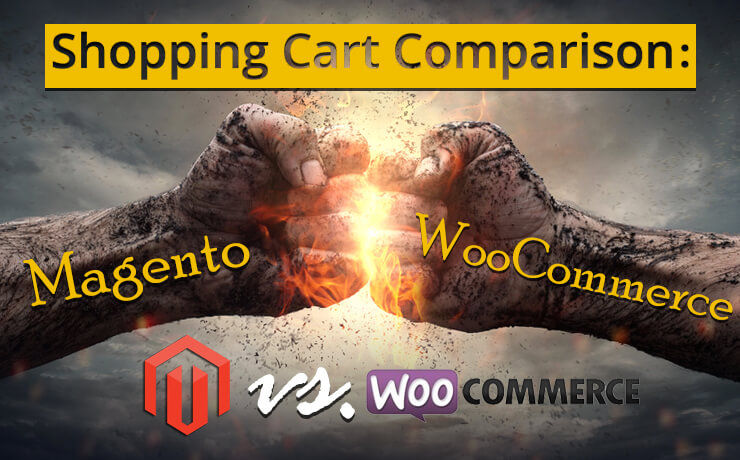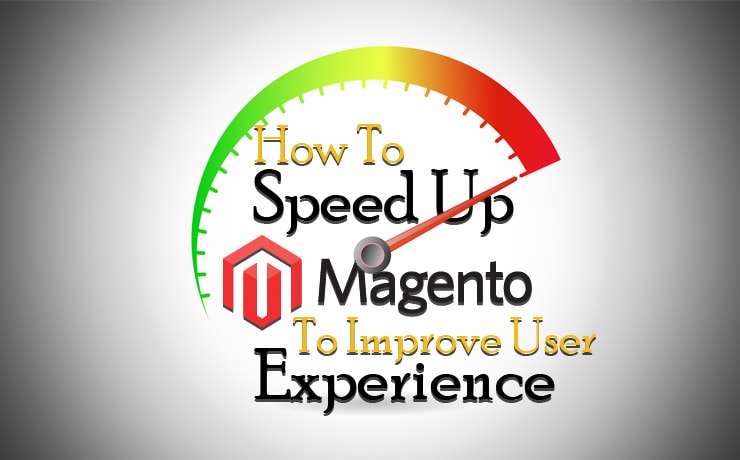Shopping Cart Comparison: Magento vs. WooCommerce

Chad Faith
Director of Content

Magento is a powerful open source shopping cart system, and a majority of its essential functions are set in the style of a multi-store. It is perfect for brands that want to distinguish their sites from their competitors. WooCommerce is a free eCommerce plugin for WordPress. It is also open source and suitable for any small to large-sized online merchants that prefer to work with WordPress.
Both Magento and WooCommerce offer flexible admin panel features to ensure that business owners can stay on top when it comes to providing quality customer service. Let’s take a look to see how both shopping carts compare when put head to head:
Top Websites Powered
 |  |
| Notable Sites Using Magento | Notable Sites Using WooCommerce |
| Olympus | HypeBeast |
| Nike | Entrepeneur.com |
| Ford | J. Hornig |
| Samsung | Porter & York |
| Lenovo | Cupcake Studio |
Magento is highly popular with big international brands as it has rich eCommerce capabilities. Multi-national brands or companies that use WooCommerce are currently a rare find.
Shopping Cart Features
A major difference between the two is that Magento is a complete platform with an advanced functional and structural framework. WooCommerce is only a plugin that can only be installed on certain CMS systems. However, WooCommerce is comparable to Magento when it comes to shopping cart features that matter.
General Management Features
Both platforms offer a plethora of features when general management is involved. The main difference between the two is that Magento is the only one that offers multiple store views from a single location.
Product Browsing Features
Magento is slightly superior in terms of navigation as WooCommerce only allows users to select one attribute only for filtering purposes.
Marketing & Promotion Features
Both platforms are great marketing tools to retain loyal and returning customers. If you want to edit important pages such as a landing page from a .CSV file, you should opt for Magento. However, if you want to install an affiliate program, then you should go with WooCommerce.
Catalog Management Features
Great online stores need to provide a myriad of unique items and a reliable system is required to sort them out quickly. What we love is that Magento allows unlimited email templates here, though WooCommerce isn’t far behind in catalog management.
SEO & Web Design Features
Best SEO practices are vital for any online business, and it seems that both platforms have all the bases covered. However, Magento has a consistent track record of offering pretty much what every business needs.
Analytics & Reporting Features
The information in these reports is vital to any businesses that are running eCommerce stores. Both platforms have strong analytics and reporting features so we have to call a deuce here.
Final Verdict
One of the many WordPress plugins under WooThemes, WooCommerce is beneficial for new startups that want to build their first eCommerce website using WordPress. This platform allows newcomers to exercise a substantial amount of flexibility with their products, without requiring too much technical knowledge on their end.
Magento is more suitable for bigger businesses that have been around for some time. Large businesses require a Content Management System that is tried and tested, and Magento’s SEO friendliness is evident from the moment a user adds a product, for example generating meta titles and descriptions without needing any additional plugin.
Research shows that Magento has nearly 27% of the market share among all the eCommerce platforms while WooCommerce’s share is less than 10%. In line with the statistics, we will say that it’s a safer bet to go with Magento, and if you need Magento development services, you won’t have a hard time finding them!
 Free
Consultation
Free
Consultation Free
Google Ads Audit
Free
Google Ads Audit







